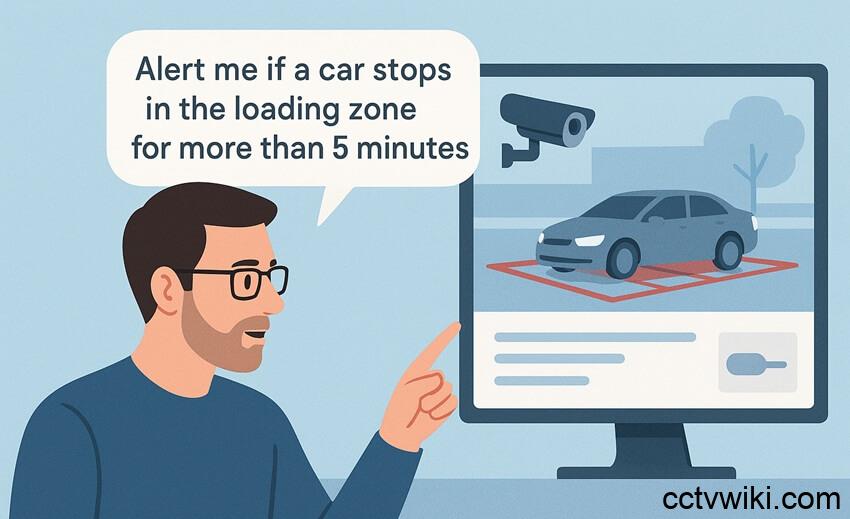Natural Language Alarms: The Future of Video Surveillance?
Imagine a world where setting up complex video surveillance alarms is as simple as saying what you want. That’s the promise of natural language-based rules engines, a technology poised to revolutionize the security industry by allowing virtually anyone to create sophisticated surveillance algorithms. No more need for specialized engineers or complicated coding – just plain language.
Consider this scenario: you want an alert when a car lingers too long in the loading zone. Traditional systems require a complex process: gathering materials, annotating data, training algorithms, and deploying them – all handled by experts.
But what if you could simply type or say, “Alert me if a car stops in the loading zone for more than 5 minutes,” and the system automatically creates the necessary algorithm? That’s the power of natural language-based rules engines. These engines let users define surveillance rules in everyday language – for example, “Alert me if a person enters the restricted zone after 10 PM.” Fueled by the rise of natural language models, large-scale AI, and tools like ChatGPT, this technology is generating significant buzz in the video surveillance world.
So, what are the benefits?
The Advantages of Talking to Your Security System
* **Ease of Use:** Forget complex configurations and scripting. Natural language makes alarm setup accessible to everyone, regardless of technical skill. No programming required.
* **Flexibility:** Easily update or add new rules without the need to retrain the entire system.
* **Scalability:** Deploy custom algorithms across multiple locations and cameras without extensive manual configuration.
* **Dynamic Control:** Security teams can adjust rules on the fly using simple, natural language commands.
“Natural language-based engines democratize video surveillance by allowing users to set rules in plain English, lowering the technical barrier to entry. This leads to faster, more user-friendly searches and forensic reviews, especially when combined with powerful computer vision in hybrid edge-cloud setups,” explains Albert Stepanyan, President and CEO of Scylla AI.
He adds, “Conventional systems often involve manual zone drawing and intricate parameter settings through complex interfaces. Natural language-based engines streamline this by enabling intuitive setup and more accurate, user-friendly rule creation, without requiring deep technical expertise.”
Stepanyan believes that sectors like healthcare, education, retail, and critical infrastructure are set to gain the most, as staff without specialized training can efficiently manage and configure surveillance systems.
The Inner Workings: Core Components Explained
How do these natural language rules engines actually work? It all starts with natural language understanding, which involves:
* **Intent Detection:** Recognizing the user’s goal, such as “detect entry,” “track object,” or “send alert.”
* **Entity Extraction:** Identifying key elements like objects (person, car), actions (entering, loitering), and conditions (time, location).
The system then parses and maps these elements, converting the natural language command into a structured rule, such as “Alert if a person enters Zone A after 8 PM.” Finally, an event trigger and response mechanism defines what happens when the rule’s conditions are met.
To make all of this happen, several core components are crucial: NLP (natural language processing) models, computer vision models, a robust rules engine, and an integration layer that connects NLU outputs with video analytics and alert systems.
“Key components include computer vision models for object detection, hybrid edge-cloud processing for real-time performance, and lightweight NLP for interpreting queries,” Stepanyan notes. “The emphasis is on efficient vision-based analytics, with NLP serving as a bridge to make interaction natural and reliable.”

